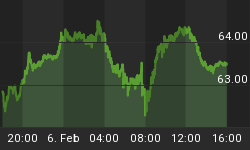"Hypocrisy in anything whatever may deceive the cleverest and most penetrating man, but the least wide-awake of children recognizes it, and is revolted by it, however ingeniously it may be disguised." ~ Count Leo Tolstoy 1828-1910, Russian Novelist, Philosopher
China is aggressively jumping to hard assets again, they are seeking to unwind their position in the US dollar or at the very least hedge themselves against the upcoming hyperinflationary phase that is going to hit the entire world in the not to very distant future. Their move into copper and sugar clearly illustrates that this is the beginning of trend and that many cash rich nations (Japan, Russia, several countries in the Middle East, etc) will soon follow China's lead.
One of the reasons for the rise in the price of copper is all but obvious; this reason is known as the China factor. Now that prices are so low, they are busy stock piling this red metal, in addition they know that hyper inflation is about to hit the United States and the rest of the world, for the most part, and so they are busy buying up hard assets in an attempt to at least redeploy part of their vast foreign currency reserves. In the first two months of 2009, Chinas copper imports were up 71% in comparison to those of last year. Most of this buying is to add to the stock pile of the State Reserve Bureau (SRB) which is now in the process of securing 2% of the worlds copper output or 300,000 tonnes.
Our target on copper is still in the 220-240 ranges (so far it has traded as high as 223.15), and it is possible it could spike as high as 260 before mounting a correction. Once the threat of hyper inflation becomes real, expect all nations with huge reserves to start deploying their Dollars into hard assets.
China's sugar reserves surged to 2.8 million metric tons, up 75% from 1.6 million; they grew for the first time since 1991; another clear cut sign that China is aggressively looking for new ways to get out of its dollar holdings. It is also aggressively investing in uranium projects In Africa and in central Asian countries such as Kazakhstan.
China and Argentina have come to an agreement that has very serious long term implications for the dollar. China has agreed to a 10.2 billion dollar swap with Argentina that would allow it to receive Renminbi (Yuan) instead of dollars for its exports. This clearly could mark the beginning of a new world currency reserve one that will replace or compete with the dollar.
Adding even more fire to the picture China Wants SDRs to replace the Dollar as the Global Reserve Currency
Actions speak louder than words. Less than a week after he wrote an article proposing that the dollar be replaced as the world's international reserve currency, Zhou Xiaochuan, China's central bank governor, signed off on a $10.2 billion currency swap with Argentina. Under the terms of the deal, China will receive renminbi instead of dollars for its exports to Latin America. An Associated Press report notes that Beijing has signed "similar deals to bypass the U.S. currency with South Korea, Malaysia, Belarus and Indonesia." Such swaps -- all signed since December -- add up to more than $95 billion
China's views are starting to gain support. Russian President Dmitry Medvedev has called upon the G-20 leaders to explore alternatives to the dollar as a reserve currency. Not to be outdone by the Chinese, Venezuelan President Hugo Chavez has called for the creation of a "new oil-backed currency to challenge the U.S. dollar." Chavez sought support for his proposal this week from among the Arab states at a conference of Arab and Latin American countries in Doha, Qatar. Full story
Conclusion
Investors would be wise to hedge themselves by deploying some of their money into hard assets such as oil, Gold, Silver, Timber, natural gas etc.
Relevant ETF's
Gold= GLD
Silver= SLV
Natural Gas= UNG
Oil= USO
"Imagine believing in the control of inflation by curbing the money supply! That is like deciding to stop your dog fouling the sidewalk by plugging up its rear end. It is highly unlikely to succeed, but if it does it kills the hound." ~ Michael D. Stephens















